Getting Around Cape Town
2020-11-05 12:09:58Many might agree that transport in Cape Town presents unique problems for tourists visiting for the first time. Or does it?
Well, with the right guide, you can put your mind at ease and GREATLY improve your transport options while in the Mother City. You may even end up experiencing more of this beautiful city than you expected.
In this post, we give you a Capetonian’s guide to transportation options in Cape Town and the unique benefit of each one. And, for the REALLY adventurous, we’ve thrown in a bonus option at the end.
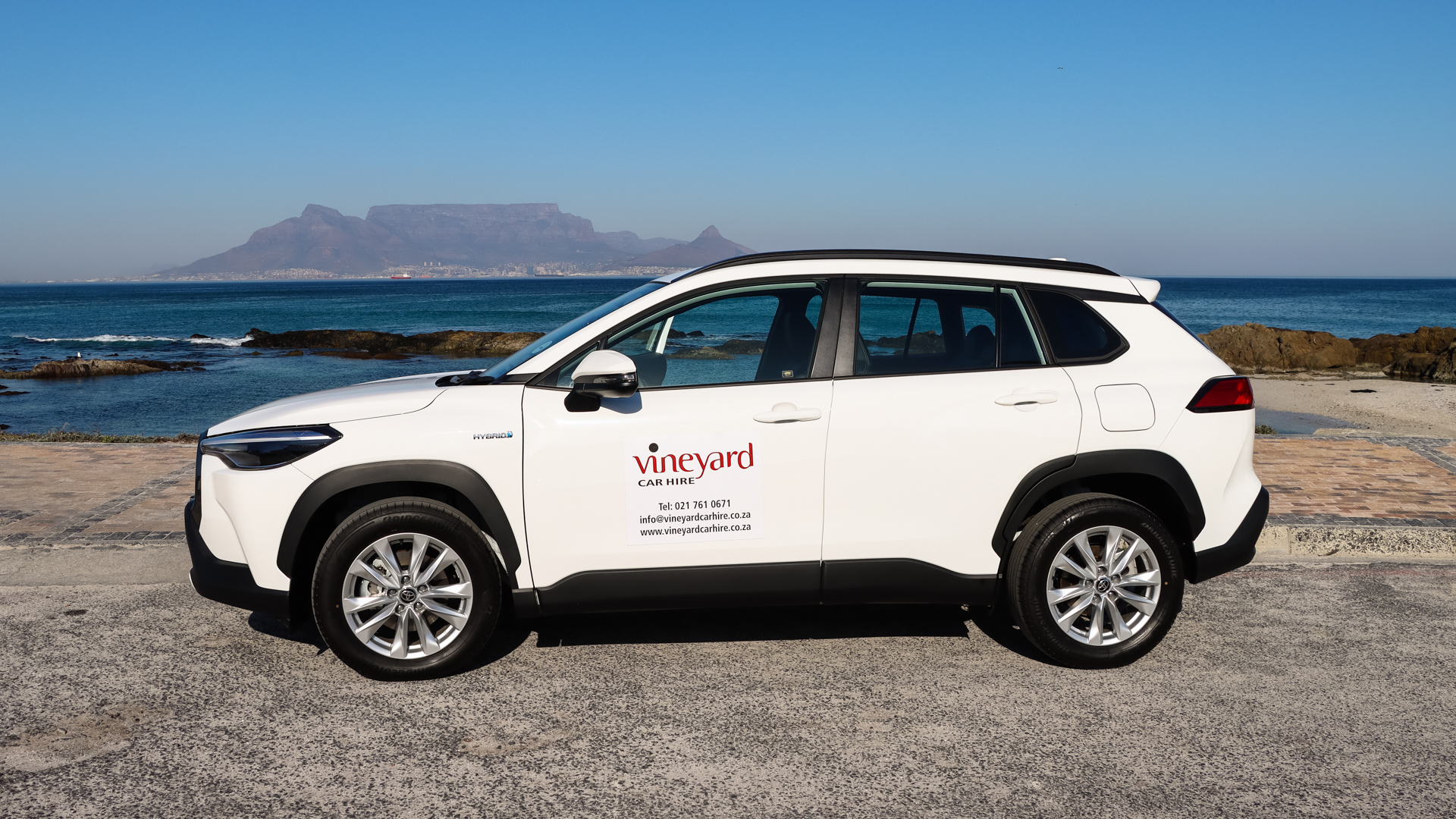
Update 2023:
This article was first published in 2015, not much of what was written then still applies so we've completely updated this guide for the 2023 summer season. For example, back in 2015 Uber wasn't readily available in Cape Town and they were quite expensive. These days Ubers are abundant and affordable, and feature very highly as our most highly recommended, safe and affordable ways of getting around the city (other than hiring a car from Vineyard of course). Also back in 2015, the Metrorail network was still a viable option for getting around the city, these days it's both unreliable and unsafe, so it’s not recommended for visitors to our fair city.
Uber: High Tech Transport Solution

Like much of the globe, Uber has had an impact on transportation around Cape Town. It is an appealingly simple way to get around: just download the app, call up a car, and be on your merry way. You don’t even need to carry cash (although that is now an option).
Uber offers the big benefit of no set route – the driver will take you exactly where you want to go. And because you don’t have to drive, you get to enjoy the ride there. Of course, such convenience comes with a price, and Uber’s biggest downfall is the amount you’ll be asked to pay, especially for longer trips.
Go By Bus: Cheap and Cheerful
The Golden Arrow bus network has been providing public transport in Cape Town since 1861, and is still going strong. However they’re not the most tourist friendly way of getting around, and while much improved these days, with new vehicles having been added to the fleet in recent years, they are still not always the most reliable method of public transport for visitors. The more recent MyCiti bus is a MUCH better option.
MyCiTi Bus: Efficient and Easy
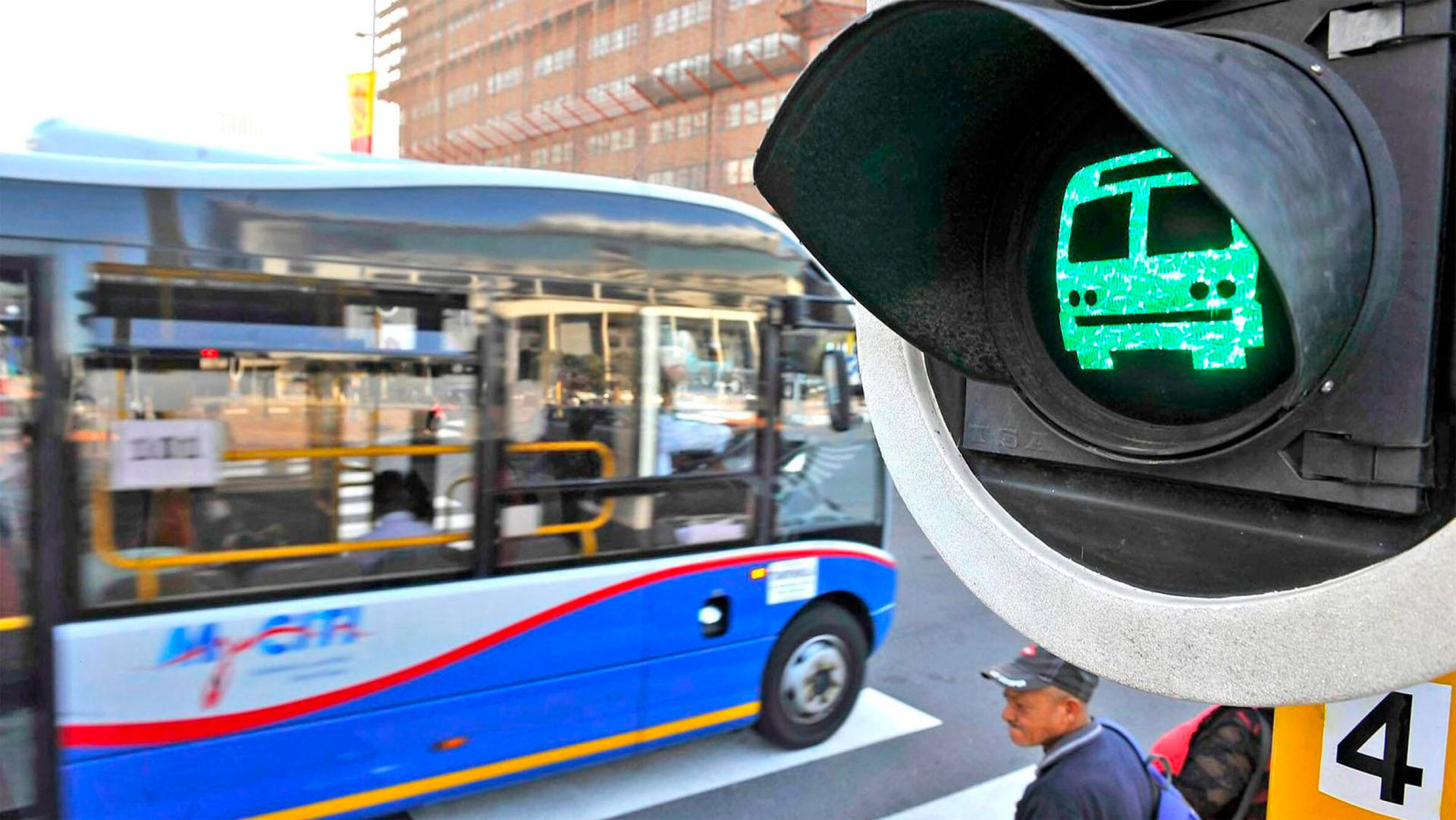
A more recent addition to Cape Town, the MyCiTi integrated rapid transport network offers an easy and cheap way to get around town. These modern buses offer great public transport options for the city centre and a host of nearby landmarks, and the service now extends to:
- Hout Bay on the Atlantic Seaboard
- Table View and the Blouberg coastline North of the city
- Cape Town International Airport
While offering a far more modern and reliable service than many other transport options, the MyCiTi service still suffers from a slight lack of coverage. This is improving all the time, but for the moment there are still some limits to the MyCiTi network in reaching some of Cape Town’s best sights. But, a new development is that the city has decided to add 11 all electric buses to their fleet, so you can do your bit for the environment at the same time.
The fares on the MyCiTi buses are calculated according to the distance traveled, and you’ll need to buy one of the MyConnect cards, available at the stations or select retailers, and load enough money for your trip. For some reason you aren't able to load funds onto the card online yet, you need to do it at one of the numerous physical outlets around the city, here's a link showing locations.
You can also download the app on either the App or Google Play stores, search for "MyCiTi App", sadly the app also doesn't allow for topping up funds, but it does have a bunch of useful features, and shows all the latest routes and schedules. So it's definitely worth installing.
Metered Taxis: The Safe Option
In competition with Uber, there is always the option of metered taxis. Fares are always displayed on the outside of the car as a per kilometre amount. Metered taxis are administered by the City of Cape Town, and as such are restricted to designated taxi ranks. This means that in order to make use of them, you either need to book well in advance or find one of these designated areas.
Aside from this minor restriction, metered taxis offer a reasonable way to get around and see Cape Town.
Car Hire: Make Your Own Plans
The sights of Cape Town are spread far and wide. Tourists can choose from the Company’s Garden in the city centre, to Cape Point Nature Reserve in the South. You might want to visit the Constantia Winelands, or go further afield to the Stellenbosch and Franschhoek wine routes. There are whale watching opportunities in Hermanus on the Southern Coast to the East, the wild West Coast stretching northwards or what about a road trip along the famous Garden Route?
It is possible to combine a number of transport solutions in such a way that you can visit all these options. Or you could just hire a car, which is naturally our favourite way of getting around.
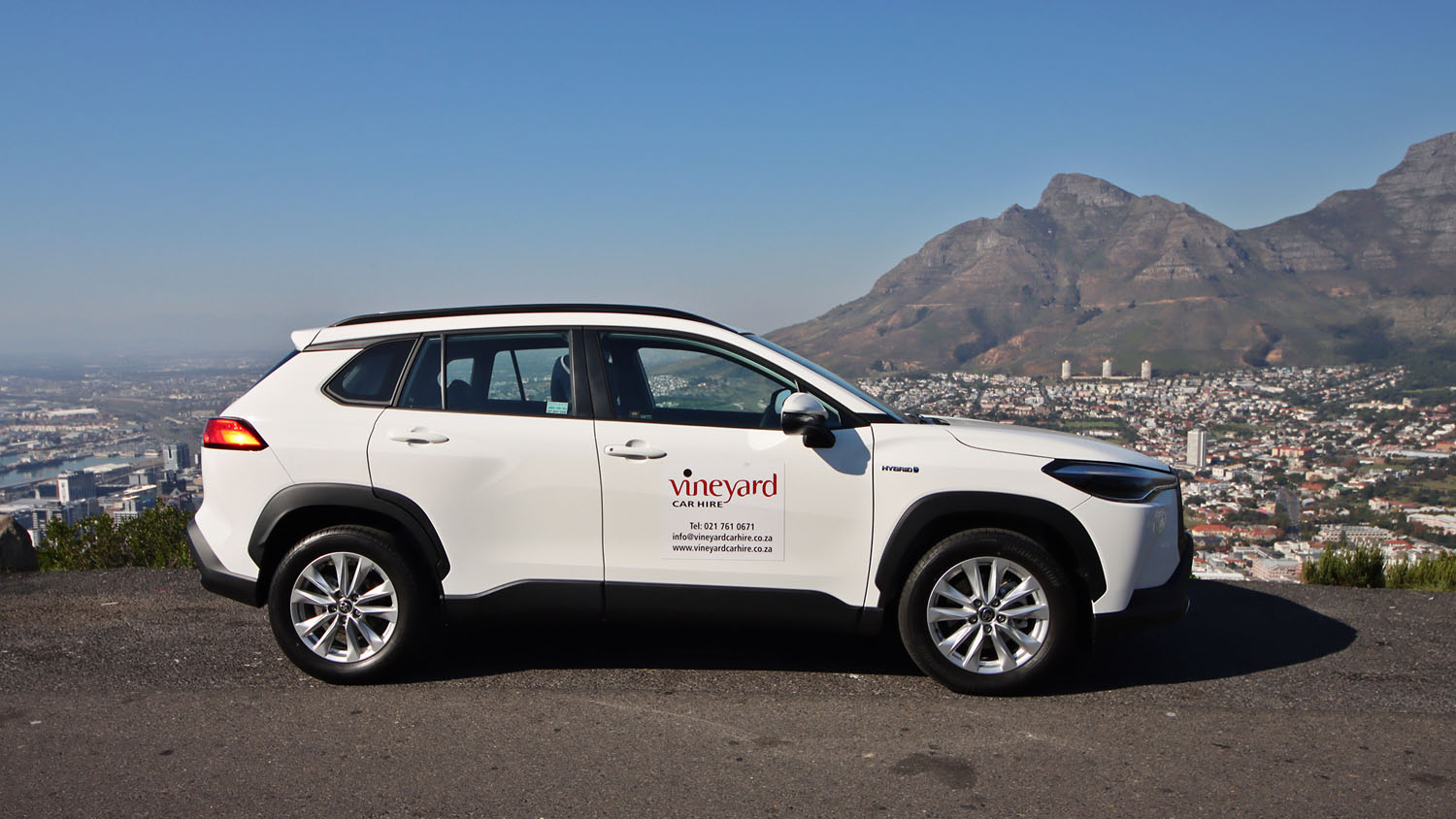
A hired car will cost more than many other types of transport – starting at about R300 a day – but makes up for it in versatility. Access to a car allows you to plan your trip on your own time, and explore as far as you feel like. A car also gives you an easy place to store valuables while you explore on foot, giving you an extra piece of mind.
Like any of your other choices, it does have drawbacks:
- Aside from the price of the car hire, you will need to budget for petrol usage
- Parking is often a problem in the crowded city centre.
- Driving yourself can mean getting lost, but Google Maps makes that far less likely these days.
- You will need to ensure that you have an international driver’s license.
Cape Town is also home to a uniquely South African phenomenon. These men and woman – often wearing reflective vests – watch your car in exchange for some loose change when you return. Keep some change on hand to tip your car guard a couple of Rand when you’ve been gone for a while.
If you do decide to go with the car hire transport option, you’ll need to do some research to make sure you pick the best car for your needs. With a bit of searching it is also possible to find special deals, making your trip a little more reasonable.
Many car hire companies offer their services at the airport, so if you don’t manage to pre-book a car, you needn’t worry about being stranded.
City Sightseeing Bus: An Educational Meander
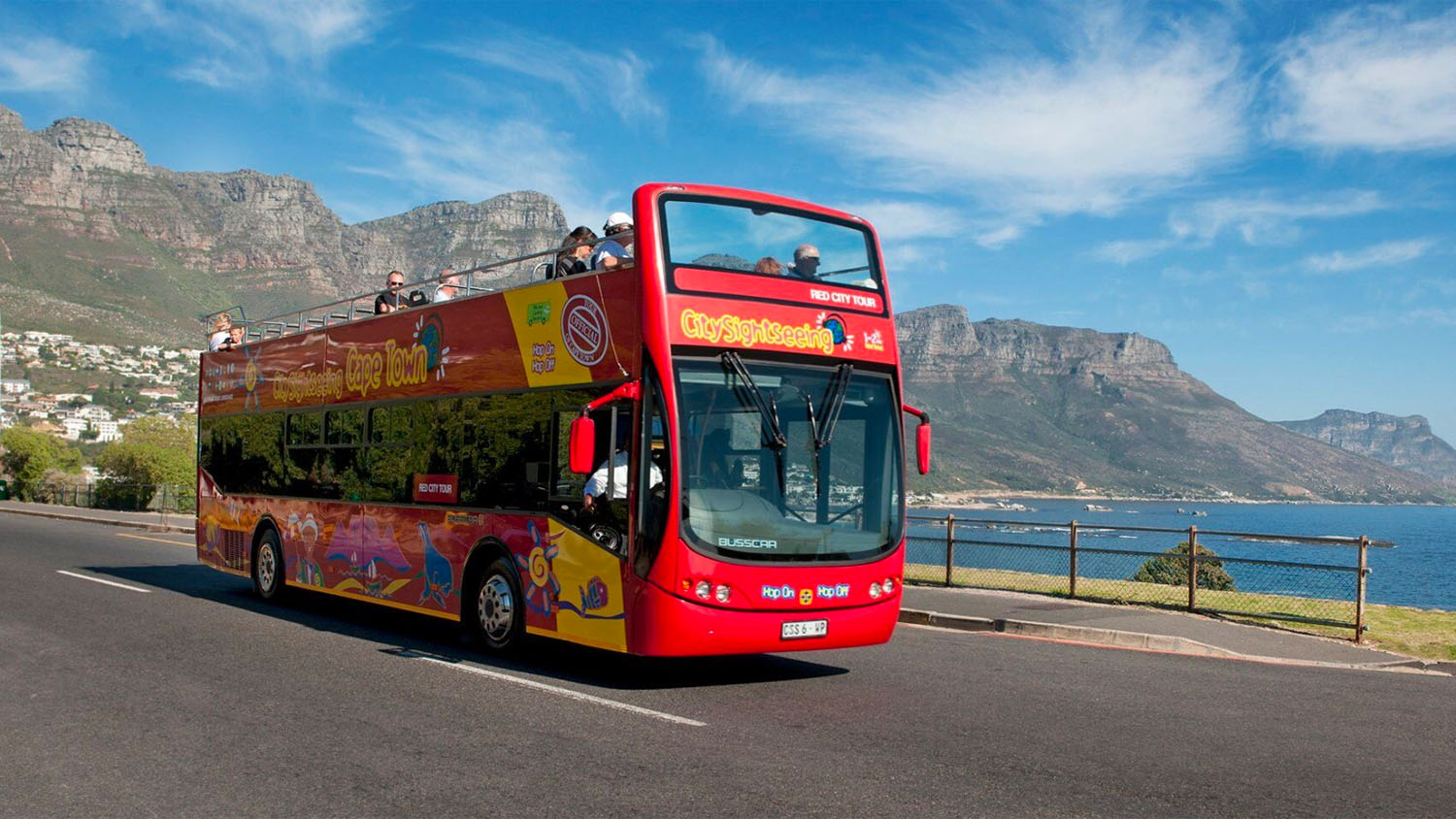
For one of the most interesting and scenic modes of public transport in Cape Town, tourists can’t do much better than the City Sightseeing bus – although be warned, this is not for those in a hurry!
Buying a ticket for these scheduled double-decker buses lets you get on and off at any of the stops, and includes an audio commentary for all major attractions on the route. Your ticket is valid all day, giving you plenty of time to hop off and explore.
Routes available for tourists include:
- The Blue Route through the Southern Peninsula and the Constantia Winelands (home to the oldest wine farms in the country)
- The Red Route through the city, including a stop at the Table Mountain Cableway.
One of the drawbacks of this particular transport option is the price: at R170 for a one-day ticket it is not the cheapest option available, but for those interested in exploring the landmarks of Cape Town in a novel and informative way, it’s hard to beat.
Metrorail Trains
The Metrorail Train system is quite possibly the most widely used mode of public transport for ordinary Capetonians, with more than 732 000 passenger journeys every weekday. That said, its broad use among local South Africans doesn’t necessarily translate to ideal transport for tourists in Cape Town. The trains offer access to much of Cape Town and beyond, while not straining the wallet overmuch – a first class ticket costs about R10 – they are not always particularly punctual and they are NOT SAFE for visitors so are BEST AVOIDED.
Or you could go truly local, and try something different.
Minibus Taxis: For the Adventurous Spirit
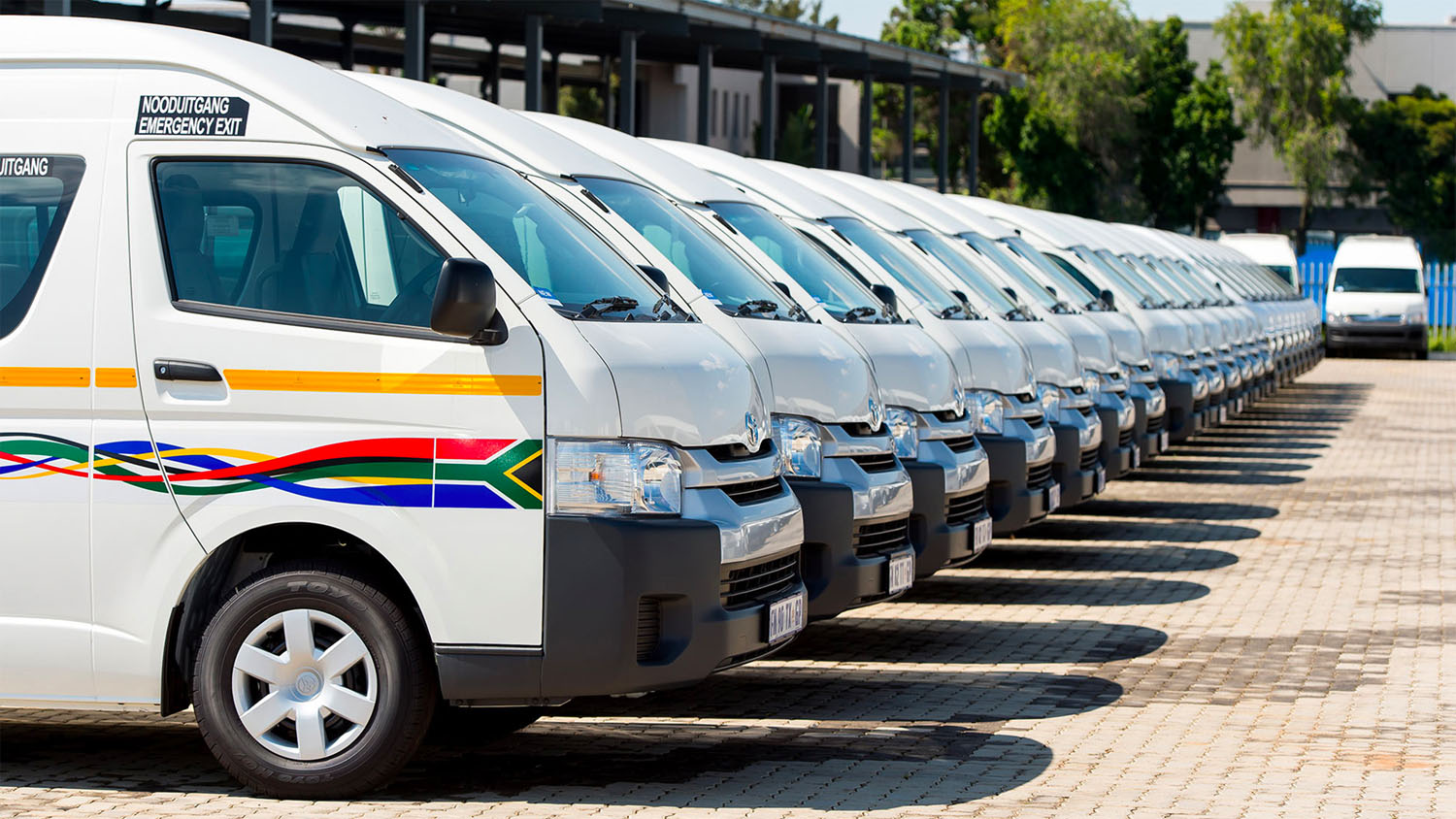
The fabled minibus taxi is a ubiquitous part of South African life that nevertheless seem a bit of a shock to those not familiar with them. These often battered vehicles follow rules and laws that are seemingly their own, stopping wherever and whenever they like, and maneuvering through traffic with a vaguely destructive efficiency. In peak hours they will be stuffed full of as many people as the taxi can possibly carry, so if you’re claustrophobic it’s best to avoid them.
Using this novel form of Cape Town transport has its own rituals:
- Each taxi will have a fare collector shouting out the direction they’re going, or else a sign on the dashboard. So keep an eye and ear out. A driver hoots to indicate that he’s still got space.
- Raise your hand to signal the taxi. They’ll be happy to stop no matter where you happen to be standing.
- Payment is always cash – make sure to keep a handful of change with you, as drivers won’t always be able to help out with this.
- When you get near to your destination, simply tell the driver. They’ll find a spot that’s convenient (for them) to stop – it’s helpful if you use a landmark for this.
Minibus taxis are not expensive – short trips can cost as little as R5 – but a transport option for tourists in Cape Town, they are not for the faint of heart. If you do decide to brave it though, it is an exciting and often fun way to travel and interact with locals.
But maybe you’d like to get in some exercise while you sight see?
Bicycle: Cardio and Sightseeing
With the Cape Town Cycle Tour claiming the distinction as the largest timed cycle race in the world, you can bet Capetonians like to get around on bikes.
There are a number of options for tourists to get their bicycle fix when visiting the mother city. There a number of tour operators who offer bicycle based options, such as:
These sorts of tours usually cost between R400 – R600, and include the use of a bike and helmet.
If you’d rather find your own way around, there are a large number of choices out there, including drop-and-go options. Rates can be hourly or daily, so it’s best to do some research and make sure you’re getting what you need.
Walking: Find Hidden Treasures
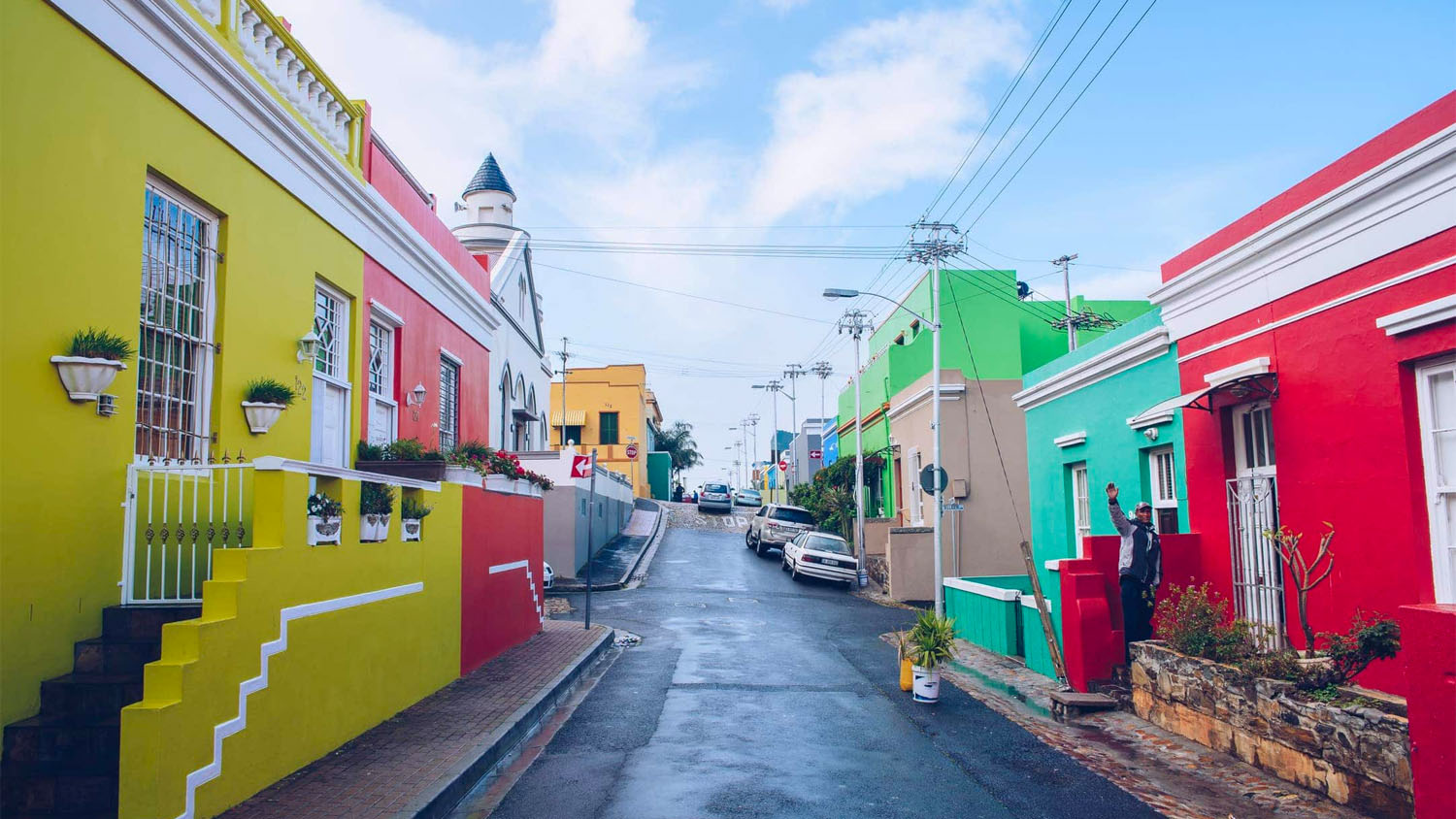
While many of the attractions available in Cape Town require transport beyond the city bowl, there’s also a lot to see in town itself. The small size of the city centre makes walking an easy way to see the sights, and will often turn up hidden gems not found by travelling in a taxi or car.
There are a number of walking tours to enjoy in the city, including the adventurous Tunnel Tours.
If you’d rather make your own way, the Company’s Garden is an oasis in the city that is home to:
- The Houses of parliament
- The Iziko South African Museum and Planetarium
- The South African National Gallery (part of the Iziko Museums organization)
- The Company’s Garden Restaurant
Cape Town city centre is also home to such attractions as Greenmarket Square, St George’s Mall and the historic Bo Kaap area.
Unfortunately, walking in Cape Town also presents its own challenges. Tourists should avoid dark, isolated areas, stay in groups, and keep any valuables – including cameras and phones – out of site. While South Africa’s reputation for danger can be often over exaggerated, it is nevertheless best to exercise a degree of caution and common sense.
If that sounds to tiring, or you want to explore further afield, there is a better option.
Bonus Option: Helicopter

Yes, for those who like to do things a bit differently, you can explore Cape Town from the air. There are a number of options, with prices starting at about R2500.
While this is obviously not the cheapest option, and definitely not for those who are wary of heights, it does offer a unique view of Cape Town and surrounds.
So why not live a little?
Book a car
Enter your quote reference number to proceed with your booking.
Latest Blog Articles
- Discover Affordable Car Hire: Cape Town Airport Options | Vineyard Car Hire
- Car Hire Cape Town: Navigate the City with Ease
- Car Hire Cape Town: Your 2025 Ultimate Guide
- Best Car Hire Deals | Affordable & Reliable Car Rentals
- Explore Cape Town in Style: Your Ultimate Guide to Vineyard Car Hire and Scenic Drives
- Discover Cape Town’s Festive Gems This December with Vineyard Car Hire Convenience
- Unwind in the Cape Winelands This Festive Season with Vineyard Car Hire
- Discovering Stellenbosch, History, Nature, and Wine
- Where to visit on a trip to Kalk Bay
- Cape Town Nightlife & Entertainment Safety Tips



